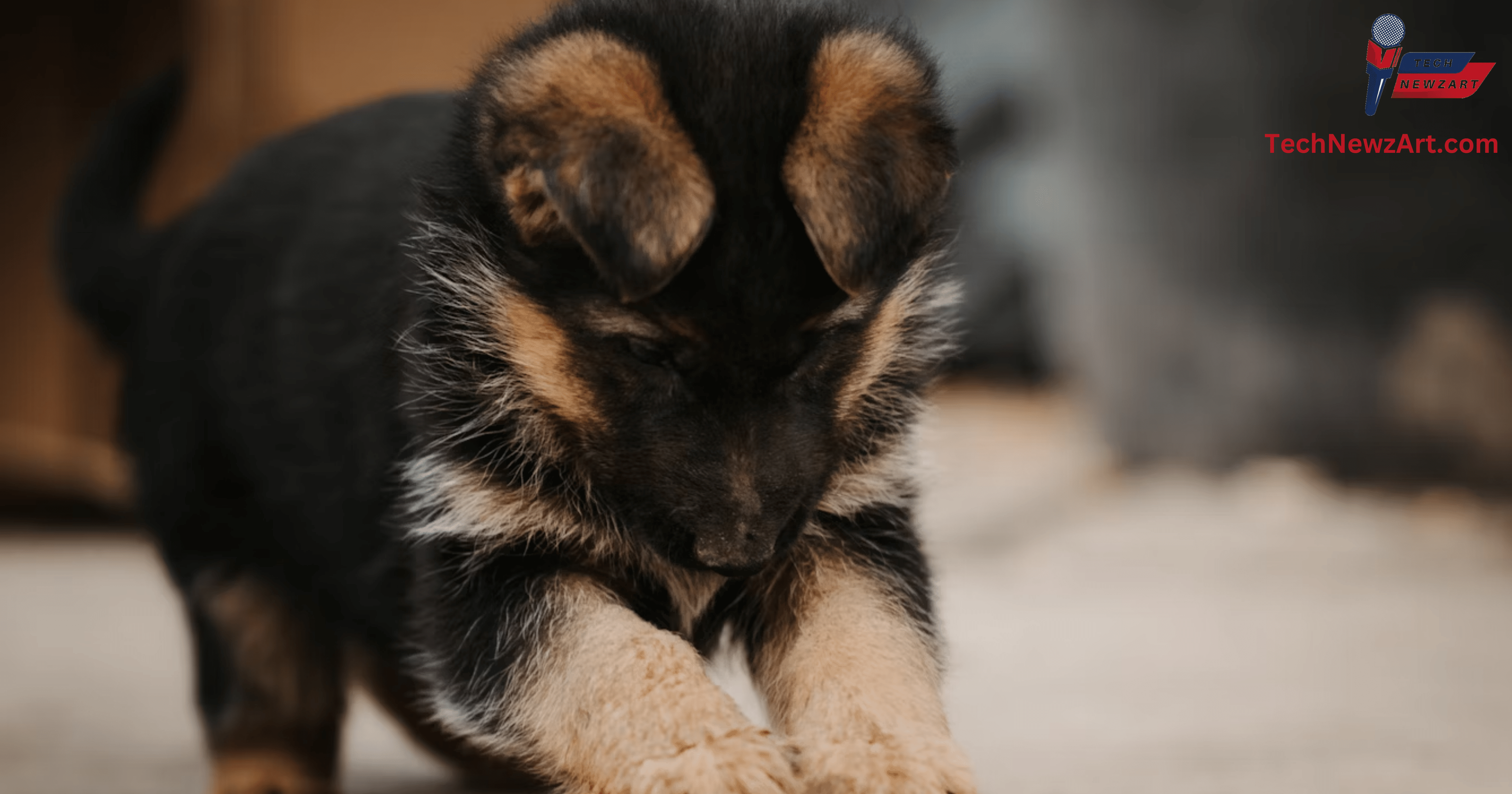The Charm of German Shepherd Puppies
Are you thinking about bringing a German Shepherd puppy into your life? Excellent choice! German Shepherds are known for their loyalty, intelligence, and striking appearance. They make fantastic family pets and are incredibly versatile, excelling in various roles, from companionship to working dogs.
Why Choose a German Shepherd?
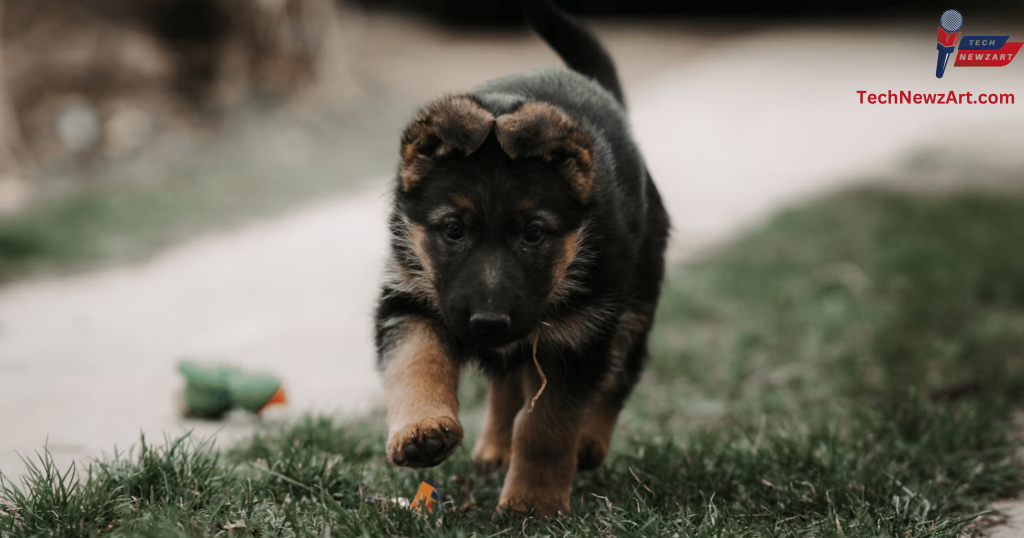
German Shepherds aren’t just any dogs—they’re a breed that stands out due to their exceptional traits. Known for their courage and keen senses, they are often employed in police and military roles. But beyond their professional capabilities, German Shepherds are loving, protective, and gentle family members with their human pack.
Understanding German Shepherds
A Brief History
The German Shepherd breed started in Germany in the late nineteenth 100 years. Captain Max von Stephanitz is credited with developing the breed to create a perfect working dog. The breed quickly gained popularity worldwide, especially after their performance in World War I demonstrated their abilities.
Characteristics and Temperament
German Shepherds are medium to large-sized dogs with a well-muscled build. They have a double coat that can be either medium or long. Temperament-wise, they are known for being confident, courageous, and intelligent. They form strong bonds with their families and can be aloof with strangers, making them excellent watchdogs.
Common Health Issues
Like all breeds, German Shepherds have some common health concerns. These include hip and elbow dysplasia, degenerative myelopathy, and various genetic disorders. Standard vet check-ups and a solid way of life can assist with moderating these dangers.
Preparing for a German Shepherd Puppy
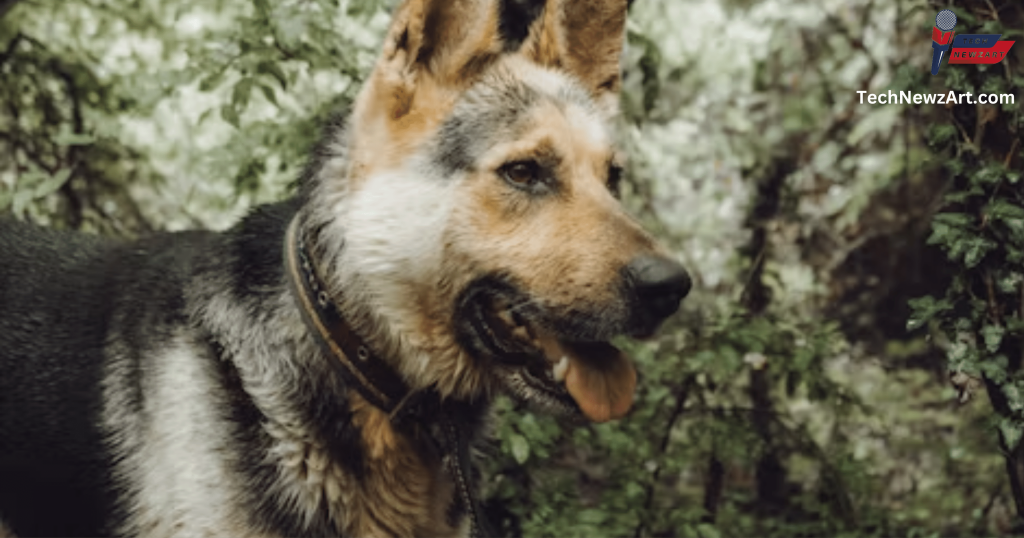
Assessing Your Lifestyle
Before getting a German Shepherd puppy, assessing if your lifestyle is suitable for such an active and intelligent breed is crucial. These dogs require ample exercise, mental stimulation, and time. They thrive in environments where they can be part of family activities and receive consistent training.
Puppy-Proofing Your Home
Very much like with a baby, you’ll have to doggy resistant your home. This means securing loose wires, putting away small objects that can be swallowed, and setting up a safe space for your puppy to retreat to. Ensuring a safe environment will help prevent accidents and destructive behavior.
Essential Supplies
Stock up on the essentials before bringing your puppy home. You’ll need food and water bowls, high-quality puppy food, a comfortable bed, chew toys, grooming tools, and a crate for training. Having everything ready will make the transition smoother for you and your new furry friend.
Finding German Shepherd Puppies for Sale
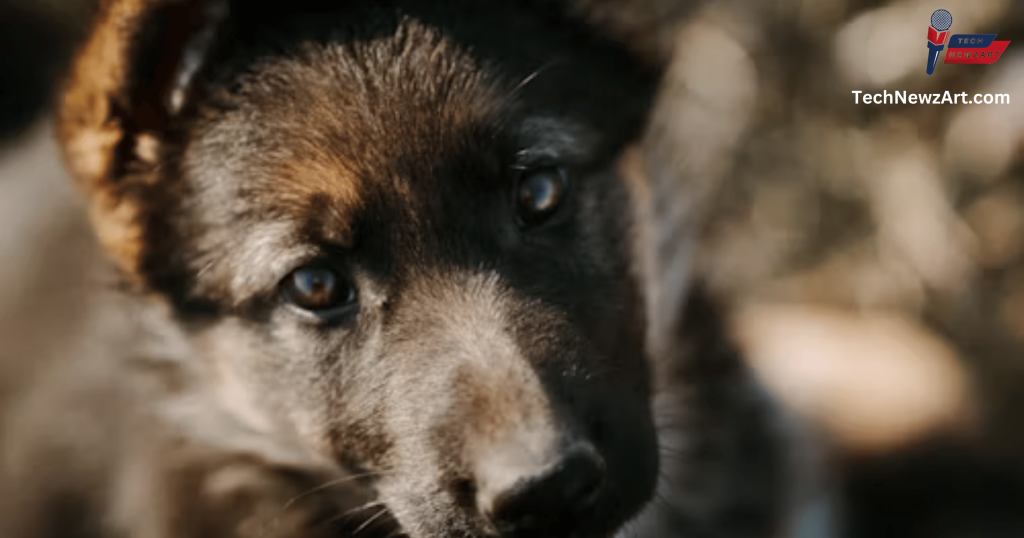
Reputable Breeders vs. Pet Stores
When looking for a German Shepherd puppy, consider going to a reputable breeder rather than a pet store. Reputable breeders focus on the health and temperament of their dogs and can provide you with detailed health histories and pedigrees.
Adoption Options
Adoption is another wonderful option. Many German Shepherds are looking for loving homes through rescue organizations. Adopting a dog can be incredibly rewarding and gives a dog in need a second chance at a happy life.
Online Marketplaces
While online marketplaces can be convenient, exercise caution. Ensure that any seller you consider is reputable and can provide proper documentation and health records for the puppies.
Choosing the Right Breeder
What to Look For in a Breeder
A decent reproducer will focus on the wellbeing and prosperity of their canines. Look for breeders who perform health screenings on their breeding pairs, provide clean and spacious living conditions, and are knowledgeable about the breed.
Questions to Ask the Breeder
Ask about the puppy’s parents, their health clearances, and any genetic testing performed. Inquire about the puppies’ socialization process and ask to see the living conditions.
Visiting the Breeder’s Facility
Visit the breeder’s facility to see firsthand how the puppies are raisedVisit the reproducer’s office to see firsthand the way that the little dogs are raised. This will give you a sense of the care and attention they receive and allow you to observe the puppies’ behavior and interaction with their environment.
Adopting a German Shepherd Puppy
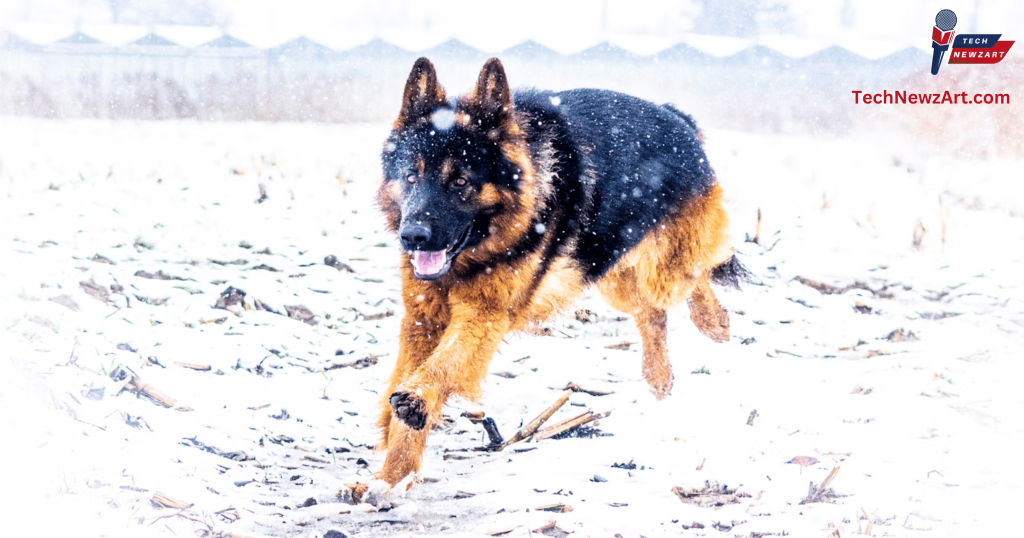
The Adoption Process
Adoption typically involves filling out an application, undergoing an interview, and possibly a home visit. This cycle guarantees that the canine is put in a reasonable home.
What to Expect During Adoption
Adoption agencies often provide background information on the dog, including behavioral issues or special needs. Be prepared to give the dog time to adjust to their new home.
Preparing for Your New Puppy
Set up a comfortable space for your new puppy and gather all necessary supplies. Prepare family members for the responsibilities of dog ownership and establish a routine to help your puppy settle in.
First Days at Home
Introducing Your Puppy to Their New Home
Give your puppy a tour of their new home, allowing them to explore at their own pace. Introduce them to their designated potty area and establish a consistent feeding schedule.
Setting Up a Routine
Dogs thrive on routine. Establish regular times for feeding, potty breaks, play, and sleep. This will help your puppy adjust quickly and understand what is expected of them.
Basic Training and Socialization
Begin with essential preparation orders, for example, sit, remain, and come. Encouraging feedback methods work best with German Shepherds. Mingle your pup by presenting them to various conditions, individuals, and creatures.
Caring for Your German Shepherd Puppy
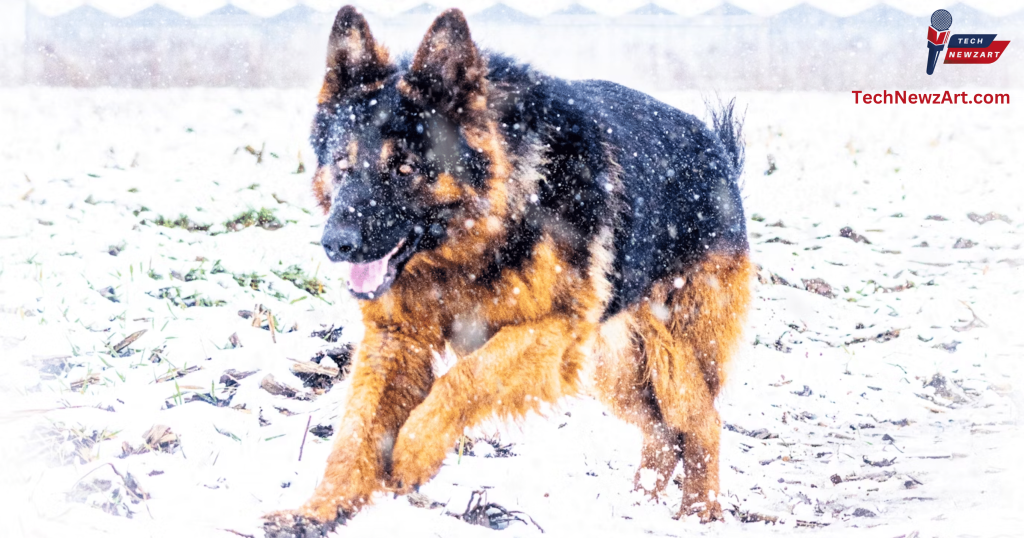
Nutrition and Feeding Tips
Feed your puppy high-quality dog food formulated for their developmental needs. Avoid overfeeding to prevent obesity and ensure they can always access fresh water.
Grooming Needs
German Shepherds have a twofold coat that requires standard prepping. Brush their coat several times a week to reduce shedding and prevent matting. Standard showers, nail trims, and ear cleaning are likewise fundamental.
Exercise and Play
German Shepherds are dynamic canines that need a lot of activity. Daily walks, playtime in a fenced yard, and interactive toys will stimulate. Show fundamental orders, for example, sit, remain, come, and heel. Utilize uplifting feedback techniques like treats and acclaim to empower appropriate conduct physically and mentally.
Training Your German Shepherd Puppy
Basic Commands
House Training
Consistency is key when house training your puppy. Take them to their designated potty area frequently and reward them when they go outside. Mishaps will occur, so be patient and steady.
Socialization Strategies
Open your pup to different individuals, places, and encounters. This will assist them with turning out to be balanced and sure grown-ups. Little dog classes can likewise be gainful for socialization and fundamental preparation.
Health and Wellness
Regular Vet Visits
Schedule regular vet visits to keep your puppy up to date on vaccinations and check-ups. Early discovery of medical problems can prompt improved results.
Vaccinations and Preventative Care
Keep your puppy’s vaccinations current and follow your vet’s recommendations for preventative care, including flea, tick, and heartworm prevention.
Recognizing Signs of Illness
Learn to recognize signs of illness in your puppy, such as changes in appetite, lethargy, or unusual behavior. Early intervention is crucial for maintaining your puppy’s health.
Socializing Your German Shepherd Puppy
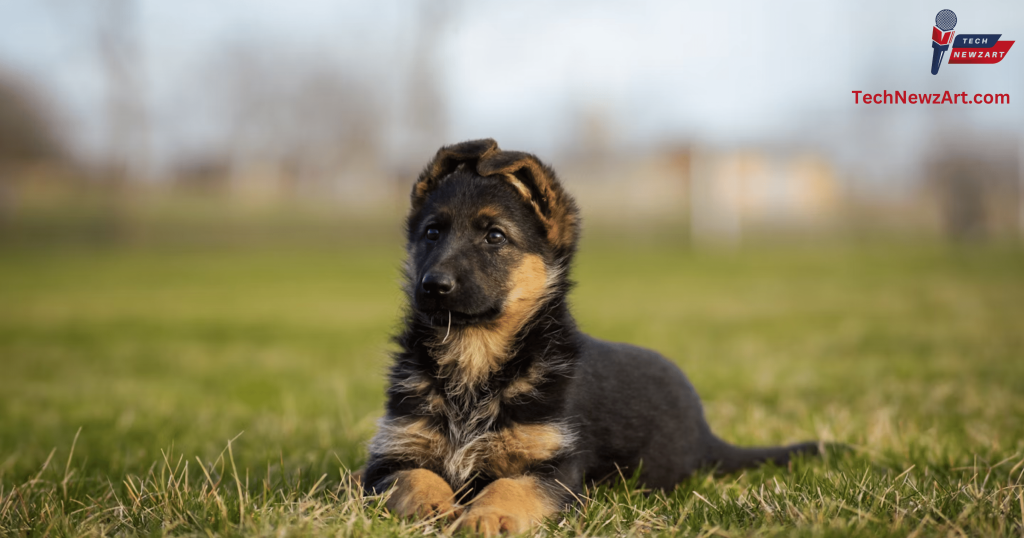
Importance of Socialization
Proper socialization helps your puppy develop into a well-behaved and confident adult dog. It reduces the likelihood of behavioral issues and helps them interact positively with people and other animals.
Tips for Successful Socialization
Introduce your puppy to new experiences gradually. Use positive reinforcement to create positive associations with new people, places, and situations.
Handling Behavioral Issues
Address behavioral issues such as barking, chewing, or jumping early on. Consistent training and positive reinforcement can help correct unwanted behaviors.
Common Challenges
Dealing with Chewing and Biting
Puppies explore the world with their mouths, which can lead to chewing and biting. Provide plenty of chew toys and redirect their behavior when necessary.
Separation Anxiety
German Shepherds can foster fearing abandonment whenever left alone for extensive stretches.. Gradually increase the time you leave them alone and provide toys and activities to keep them occupied.
Handling Aggression
If your puppy shows signs of aggression, seek professional help from a trainer or behaviorist. Early intervention is crucial to prevent serious behavioral issues.
German Shepherd Puppy Growth and Development
Stages of Development
German Shepherd puppies go through several stages of development, from the neonatal stage to adolescence. Each stage has its own arrangement of achievements and difficulties.
Expected Milestones
Common milestones include weaning, teething, and learning basic commands. Track your puppy’s growth and development to ensure they are on track.
Adjusting Care as They Grow
As your puppy grows, their needs will change. Adjust their diet, exercise routine, and training to match their developmental stage.
Engaging Activities for Your Puppy
Mental Stimulation Games
German Shepherds are intelligent dogs that need mental stimulation. Puzzle toys, hide-and-seek games, and obedience training can keep their minds sharp.
Physical Activities
In addition to regular walks, provide opportunities for your puppy to run and play. Fetch, agility training, and tug-of-war are great ways to burn off energy.
Training Exercises
Incorporate training exercises into your daily routine. This reinforces good behavior and keeps your puppy engaged and challenged.
Conclusion
The Joy of Raising a German Shepherd Puppy
Raising a German Shepherd puppy is a rewarding experience filled with joy and companionship. Their loyalty, intelligence, and protective nature make them wonderful additions to any family.
Final Tips for Prospective Owners
Ensure you are prepared to commit to owning a German Shepherd. Provide plenty of exercise, training, and socialization to help your puppy grow into a well-rounded adult dog. With the right care and attention, your German Shepherd will be a loyal and loving companion for years.
FAQs
How much do German Shepherd puppies typically cost?
The cost of a German Shepherd puppy can vary widely based on factors like breeder reputation, location, and lineage. On average, expect to pay between $500 and $1,500, though prices for show-quality or working-line puppies can be higher.
What should I look for in a German Shepherd breeder?
Look for a breeder who prioritizes health and temperament, performs health screenings, provides a clean and stimulating environment, and is knowledgeable about the breed. Visiting the breeder’s facility and asking detailed questions can help you choose a reputable breeder.
Are German Shepherds good with children?
Yes, German Shepherds are typically good with children. They are protective and gentle, making them excellent family pets. However, it’s essential to supervise interactions between dogs and young children to ensure safety for both.
How frequently would it be a good idea for me to take care of my German Shepherd pup?
Little dogs ought to be taken care of three to four times each day.. As they grow older, you can transition to two meals a day. Always provide high-quality puppy food appropriate for their age and size.
What are common health issues in German Shepherds?
Common health issues include hip and elbow dysplasia, degenerative myelopathy, and various genetic disorders. Standard vet check-ups and a strong lifestyle can help with easing these risks.
Read More On: TechNewzArt

